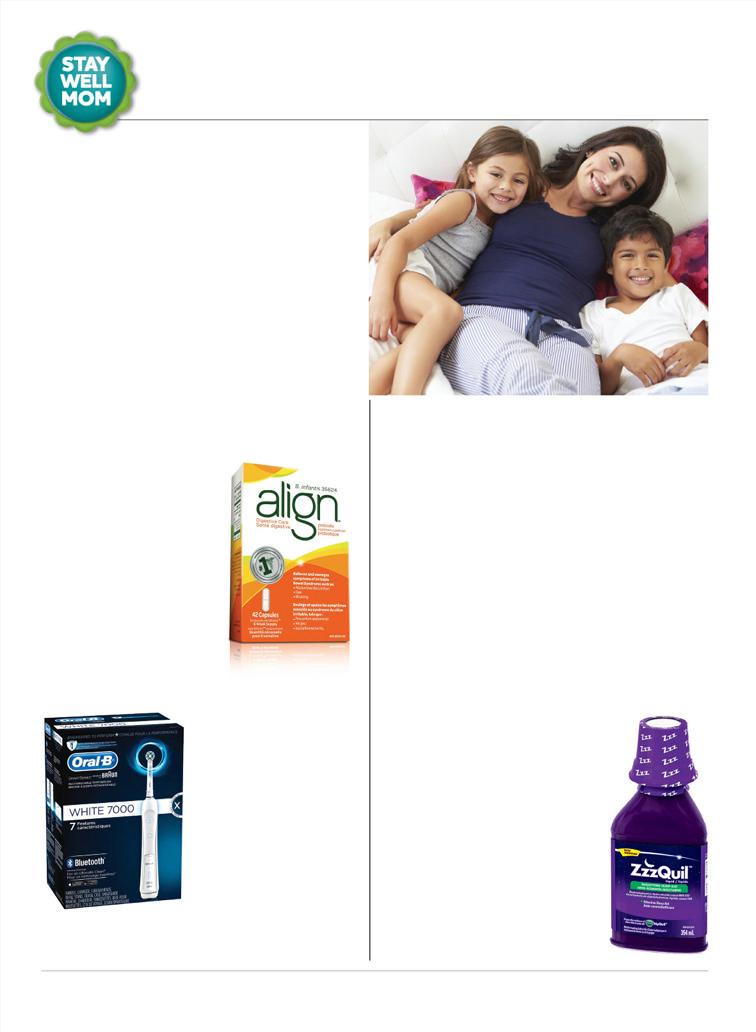
7 minute read
CHANGE OF PACE
from CL - March 2015
Change of
Not a runner? No worries: It turns out walking is the smarter get-healthy strategy. (Yes, really!) BY YUKI HAYASHI
Advertisement
WHEN I RUN, I FEEL LIKE A CHAMP. I’m not a fast or particularly stylish runner (seriously, when did a 5K race become a dress-up event? No one sent me the memo!), but I can run long and run happy, free of aches and pains. Although I’ve tried other kinds of exercise, “runner” is the identity I’ve claimed, and it’s the one that brings me the most satisfaction.
So imagine my frustration when, sidelined by an injury I sustained during a CrossFit class, I was forced to switch to walking. “I’m going to lose all my cardio conditioning!” I wailed to my partner. “Walking isn’t so bad,” he said, reminding me of the kilometres he’d been logging since we adopted our dog the year prior—kilometres that helped him lose weight and feel healthier than he had in ages.
As it happens, walking is one of the best exercises for you. It doesn’t command the street cred that running does, but it can be just as effective at reducing your risk of high blood pressure, high cholesterol and Type 2 diabetes. Walking for at least seven hours a week (about an hour a day) can even lower your breast cancer risk. Like other forms of exercise, walking is also beneficial for mental health, and reduces anxiety and depression.
Pace

“It’s a huge stress release,” says Dave Couture, who leads walking clinics for the Running Room in Edmonton.
Often, the hardest part about getting fit is taking those first steps to the gym or the pool. For beginners, walking can be less intimidating. Dave’s wife, Robyn Engel Couture, took up walking when she decided to get healthy five years ago. After overhauling her diet and joining a walking clinic, the mother of two lost a whopping 110 pounds. Now, she occasionally teaches beginner running clinics, but she says walking remains a valued part of her routine. Although she recently completed three half marathons, walking one in Vancouver, running one in Calgary and walking another in Edmonton with her father, the workout that challenges her the most might surprise you.
“I prefer running to walking because it’s not as exhausting,” says Robyn. “People think walking is easier, but if you run, especially at a run-10-minutes, walk-one-minute pace, you use that minute to work different muscles. But walking is all-out, with no rest or use of different muscles.” Walking can almost double the amount of time it takes to finish a course, which means that it can be just as hard-core as running—if not more so.
There’s a caveat, however: To maximize the benefits of walking, you need to step it up. “Fitness walking is not a stroll in the park,” says Robyn. “You’ll sweat. You’ll get your heart rate up.”
“Intensity matters,” agrees Martin Gibala, kinesiology professor at McMaster University in Hamilton. “The more intensely you walk, the more calories you’re burning.” Generally speaking, brisk walking at 4.8 to 6.4 kilometres per hour results in better gains for your heart, lungs and overall health.
But don’t let talk of intensity intimidate you. Like with any sport, the biggest hurdle is your mind. Just start walking and set small goals. “I spend an hour to two hours a day walking 20 to 50 city blocks,” says Katharine Mulherin, an art dealer and gallerist. Splitting her time between Toronto and New York, she finds walking to be a great way to explore her new city while commuting from the suburbs to Manhattan’s Lower East Side.
Don’t despair if you can’t dedicate an hour to walking every day. To see health gains, all you really need is 30 minutes, five days per week. It can even be attained in fits and bursts: getting off the bus ahead of your stop and trekking to your office, climbing stairs on your coffee break or walking the dog after dinner. If you love walking, feel free to pursue the popular goal of 10,000 steps (approximately eight kilometres) per day, but you’ll need to walk for a lot longer than half an hour to achieve it. Just remember that the best exercise regimen is the one you stick with—if that’s 30 minutes (about two to three kilometres) a day, so be it.
If you’ve lacked the motivation in the past, consider signing up for a walking clinic. We know: a clinic? For walking? Really? Even Robyn was a skeptic. “I kept saying to my husband, ‘I can walk! Put one foot in front of the other!’ ” she recalls. But what the clinic offers is a support system. Clinics help beginners overcome mental and physical hurdles, set goals, learn about gear, clothing and nutrition, and master proper form, pacing and all-important intensity. They’ll ease you into hill repeats and fartleks (a sequence of walking at a moderate pace, then speeding up, say, from one traffic light to the next), and participants are sorted into pace groups so that no one walks alone. (This is especially important in winter, when shorter days increase the potential danger of cars and, in some areas, wild animals.)
For me, it’s been an eye-opening experience. I know I’ll run again once my injury heals, but walking has become an important part of my day-to-day life. Instead of waiting in line for a treadmill so I can warm up, I speed walk to the gym and arrive ready for the weight room. Another perk has been family time. My tween won’t go running with me anymore, but walking, dog in tow? Sure. We include 100-metre speed-walking interval races, and midway This content is vetted by medical experts at through, we’re laughing. Walking isn’t running, but who cares? It’s awesome enough, just as it is.
STAY WELL
HEALTH SERIESStay in harmony
Keeping your home, work and family life in check is a chore unto itself. But you don’t need a miracle to restore a sense of self and sanity. These busy, professional moms share simple strategies that work for them.
TAKE TIME TO UNWIND
Stressed out? Don’t be surprised if your Irritable Bowel Syndrome (IBS) symptoms act up. Michelle, a college teacher, off ers two tips she uses to keep stress at bay: “I take long baths a few times a week and I read books so that I can be relaxed enough to enjoy parenthood.” Adding a probiotic, like Align®*, into your routine will help further relieve symptoms of IBS.
Align®* relieves and manages symptoms of Irritable Bowel Syndrome such as: abdominal discomfort, gas, and bloating.
TAKE CARE OF YOURSELF
For Tina, a busy dental hygienist, staying balanced means integrating positive routines into her life: “I get up before everyone else to have my morning coff ee. It gives me a calm moment before the day starts,” she says. Your routine might include daily exercise or something as simple as using the new Oral-B SmartSeries White 7000 electric toothbrush with Bluetooth connectivity, which gives you real-time feedback on your brushing.
The Oral-B SmartSeries delivers clinically proven superior results, so you won’t wonder if you’re getting a superior clean**, you’ll know. MAKE A PLAN “Planning is critical,” says Anne, a doctor. “I am a planner and like to make sure that things are organized well in advance. If I don’t, work will take over. I have to carve out time for family or else I’ll just get home in time to say goodnight to the kids.” When it comes to shopping for the family, the PC Plus™ program is also an effi cient way to help stay organized by planning your meals around your weekly personalized off ers through pcplus.ca. There are also helpful time-saving recipes that you can use to pre-plan as well!

SPEND TIME TOGETHER
“Eating dinner together is what grounds me when everything seems to be moving too fast,” says Leslie, a journalist and author. “Making dinner a priority might sound a bit traditional but, in my mind, learning to slow down, enjoy the people around us, and share ideas keeps us all connected.” Involve your kids in the process and sign them up for a class with PC® Cooking School conveniently located in Loblaws® stores. They’ll learn delicious, easy to prepare recipes that you can make together. After class, spend some family time shopping for the ingredients you’ll need to recreate the meals at home. Also available at Loblaws® are nutritious in-between-meal snacks from PC® Blue Menu®, like their Unsalted Natural Almonds, for those days when time is at a premium.
GET ENOUGH SLEEP Sleep is vital to our well-being—though sometimes getting enough is easier said than done. One hour before bedtime, shut down any bright screens (they can overstimulate your senses). When it’s time for bed, settle in, turn off the lights and take some deep breaths to help relax from your busy day. If you have occasional trouble sleeping, an eff ective sleep aid like ZzzQuil can help.
New liquid-formula ZzzQuil™† can help you sleep soundly so you wake up feeling refreshed. For your convenience, know that you can pick up ZzzQuil™† liquids at your local Loblaws.
GET MORE ONLINE
Visit pgeveryday.ca/health-wellbeing










